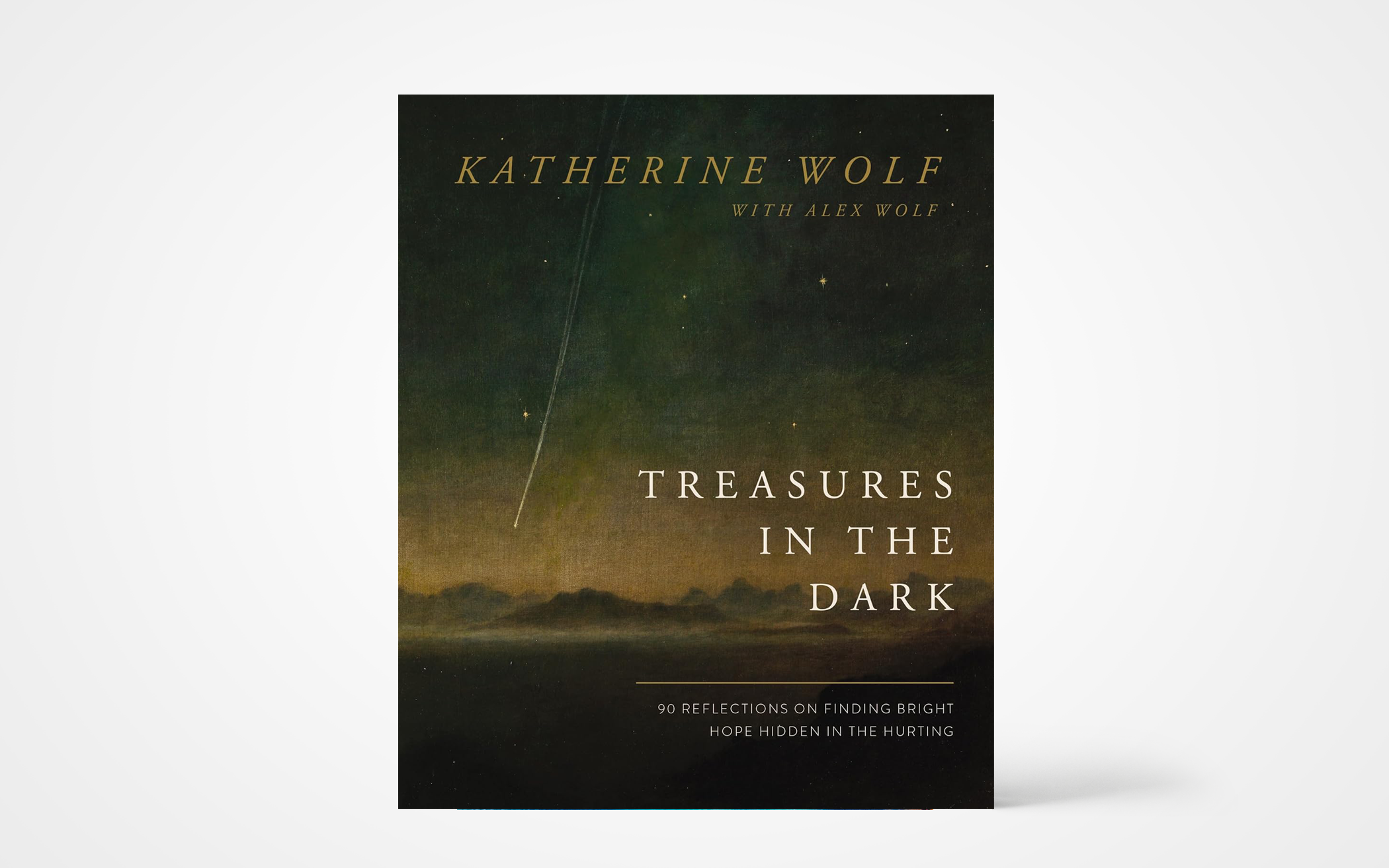In April 2008, Katherine Wolf suffered a massive brain-stem stroke that forced her to spend 40 days in the ICU. The stroke left her with life-altering disabilities at the age of 26. As a young wife and new mom, Wolf would spend months in a neurological rehabilitation hospital learning how to walk, talk, and swallow again. In her book, Treasures in the Dark, Wolf shares how the darkest days of her suffering taught her things she never could have learned through a pain-free life. Throughout the sharing of her experiences and memories in this account, Wolf readily acknowledges she’s still on a learning curve when it comes to the struggles and realities of her “good/hard life.”
In keeping with the wildness of Wolf’s brain, the reflections and musings of this book are not presented in chronological order. Each reflection highlights a main lesson Wolf has learned (or is learning) in the midst of her suffering, rehabilitation, and post-stroke life. Her memories and reflections appear as short random experiences that Wolf categorizes under three broad headings for the sake of her readers. In the first section, Wolf talks about losing the life she and her husband thought they wanted. In the second section, she talks about befriending the life they now have. In the third section, she talks about seeing her story and their lives as one small part of God’s bigger story.
Wolf does not want to suffer nor does she personally welcome suffering. If she is called to suffer and live a life marked by disability, she does not want her experiences to go to waste.
The book is heartwarming and challenging at the same time. There are great nuggets of truth worth pondering in each section and reflection. Wolf does not gloss over the hard to get to the good. She’s never received the full healing she wanted, anticipated, or expected in the early years of her stroke recovery therapy process. She and her husband cannot somehow “sneak in the back door of their pre-stroke, pre-disability life” even if they try. They must routinely grapple with the life they have been given: laments, letting go, limitations, changes, broken dreams, and joys along the way. As one “treasure in the dark”, hope is presented as something that must be believed in even when it is not easily seen, felt, or experienced.
The book is recommended for mature readers who want to grow in their understanding of how suffering and uncertainty affect daily life in positive and negative ways. Wolf does not have the life she once imagined as a newlywed, but she is actively choosing to bless God and bless others through the good/hard life she has now. Her life showcases God’s faithfulness amid disappointments, losses, and griefs. She lets readers know their struggles also have value and worth. (W Publishing)
About the Author
Amie Spriensma is an online chaplain for ReFrame Ministries and a regional disability advocate for the CRC. She lives, works, and worships in Allendale, Mich., where she is a member of Rusk CRC.

